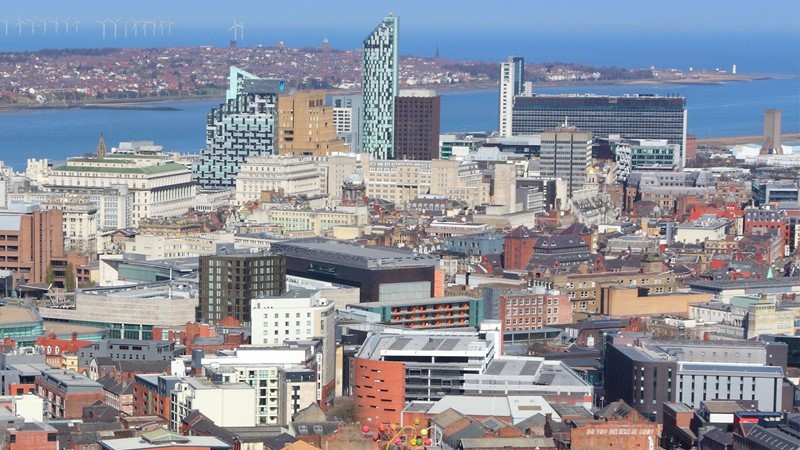The Clean Air Fund and UKCF have launched a unique partnership to deploy a small-granting scheme to support clean air campaigners in Birmingham, Manchester and Liverpool
 Author: Imogen Martineau, Clean Air Fund
Author: Imogen Martineau, Clean Air Fund
Air pollution is defined by the World Health Organisation as “contamination of the indoor or outdoor environment by any chemical, physical or biological agent that modifies the natural characteristics of the atmosphere”.
One of the most harmful pollutants to human health is particulate matter (PM2.5) which consists of tiny particles that enter our lungs and circulate through our bloodstream, impacting major organs including the brain, heart and lungs. This can contribute to a range of conditions such as strokes, dementia, heart disease, asthma and lung cancer, and can lead to premature death. Another is nitrogen dioxide (NO2), which results from human activities including the combustion of fossil fuels (coal, gas and oil) especially fuel used in cars.
Is air pollution a serious problem in the UK?
The short answer is yes. Air pollution is the biggest environmental threat to human health, causing approximately 36,000 early deaths in the UK each year. Despite some improvements since the 1990s, UK annual concentrations of PM2.5 and NO2 were still dangerously high in 2022, often exceeding national legal limits and international guidelines set by the World Health Organisation.
The UK Government has lost numerous court battles over the past decade for breaching air pollution limits, and ministers have been ordered to provide air quality plans to address the problem. However, a lot remains to be done to protect the health of those living in the UK.
As well as impacting the health of millions of people across the UK, air pollution also reinforces health inequalities, exacerbates climate change and imposes major costs to the UK economy. It is the poorest communities, living in the most congested areas, that are hit the hardest by poor air quality. Vulnerable groups, including babies, children and older people, suffer the most.
Air pollution is also closely linked to climate change, as both are caused by the combustion of fossil fuels across the transport, industrial and agricultural sectors. On top of this, a study completed in 2020 suggests air pollution is costing the UK economy £1.6 billion every year as a result of missed days of work.
At the Clean Air Fund, we work with UK campaigners, businesses, non-profit organisations and funders to raise awareness of the problem, encourage the reduction of air pollution emissions, and facilitate the introduction of clean air policies that will make a lasting impact.
Why is community-based activism so important in tackling air pollution?
Community-based activism (also known as ‘grassroot approaches’) can be a powerful way to bring about change. It’s important that the voices of individuals who are being directly affected by air pollution are central to clean air campaigns and policy debates. This is because individuals, and the communities they represent, have a better understanding of the problems they face, and ideas about the solutions they need. This makes locally based initiatives more likely to succeed in holding local politicians and policymakers accountable.
Local messages can be more effective in reaching a wider range of citizens across the UK than traditional health and environment organisations. This has been demonstrated by the success of individual clean air campaigners including Rosamund Adoo-Kissi-Debrah of the Ella Roberta Foundation and Jemima Hartshorn from Mums for Lungs.
Collaborating to support community-based activism
Clean Air Fund and UKCF partnered to support grassroots organisations in Manchester, Birmingham and Liverpool and encourage a new wave of community campaigners for clean air. We provided funds to three community foundations (Heart of England, Community Foundation for Merseyside, Forever Manchester) who invited local residents to apply for small grants of up to £5,000. Awards panels in each city reviewed and approved awards to over 40 local organisations in total looking to implement clean air solutions. Examples of projects that the grants have enabled include:
Manchester: Providing information s and awareness workshops to the Jewish community, as well as establishing a new group for young people to explore air pollution at a local level. Funding has also been used to create signage that guides walkers and cyclists along safer, healthier routes away from traffic.
Liverpool: Collaborating with researchers to monitor air pollution at main junctions and in green spaces; running ‘creative activism’ workshops and holding community consultations with local decision makers.
Birmingham: Organising a 100km group bicycle ride to raise awareness of the health impacts of air pollution. Community events are also being held to promote active travel, and air quality monitors are being installed to gather data at school commuting times in specific areas to create air quality awareness campaigns.
Shaping future air quality solutions
Small grants schemes for individuals and communities have proven to be effective in stimulating wider community action across a range of issues but have not previously been tried at this scale to tackle the issue of air pollution.
This small-granting project is being closely monitored so its impact can be determined and lessons learnt can be shared with other funders and campaigners. This will help to strengthen the evidence base regarding local approaches to raising awareness about air pollution, and help to demonstrate the role of small granting and community-based activism in bringing cleaner air to all.
Support local action
Want to get involved in tackling important issues at a local level? There are plenty of important causes that community foundations support through a single channel of giving.
Discover more

New funding from Anchor Butter to strengthen community connections
March 18 2025
Community foundations perform strongly in annual Foundation Practice Rating
March 14 2025
UKCF welcomes the Government's Digital Inclusion Action Plan
February 26 2025
Community foundations awarded 5 star rating
February 24 2025UK Community Foundations is a registered charity in England and Wales. Registered company in England and Wales . Registered address: UK Community Foundations, Northgate Business Centre, 38-40 Northgate, Newark, NG24 1EZ. Registered company no. 2651777 | Registered charity no. 1004630. Copyright © 2021 All rights reserved.

